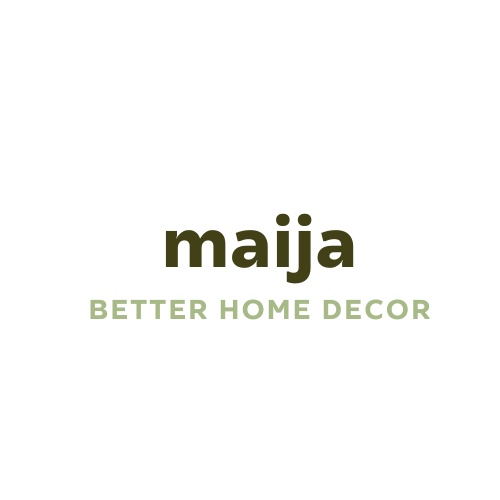
Introduction
Creating a home you love doesn’t start with a shopping spree — it starts with a feeling. A color. A texture. A spark of inspiration that says, “This is how I want my space to feel.” Mood boards are the first step to turning that vision into something real. But how do you take your carefully curated pins and swatches and actually bring them to life?
The answer lies in intention — being mindful about every piece you choose, and how it serves your overall vision. From layout to lighting, styling your space with intention transforms it from a collection of things into a true reflection of you.
Let’s walk through how to move from mood board to reality and build a space that doesn’t just look good — it feels right.
1. Start With the Feeling, Not Just the Look
Before diving into purchases, ask yourself: What mood am I trying to create in this space?
Your mood board might include serene beach tones, cozy textures, or bold graphic patterns — but behind the visuals is a feeling. Do you want your space to feel calm and restful? Energizing and creative? Sophisticated and moody?
Identify Your Mood Goals:
Tranquil : Soft neutrals, natural light, flowing fabrics
Vibrant : Pops of color, mixed patterns, playful layout
Minimalist : Clean lines, negative space , intentional restraint
Earthy : Raw textures, organic shapes, grounded tones
Elegant : Structured furniture, metallic accents, symmetry
2. Break Down Your Mood Board Into Style Anchors
Now that you’ve defined the emotional tone, it’s time to interpret your mood board into tangible elements. Think of your mood board as a guide, not a rulebook.
Style Anchors to Identify:
Color palette : Choose 3–5 core colors that appear in your mood board and echo the vibe you want.
Materials : Are you drawn to rattan, velvet, marble, or matte black finishes? Let your materials tell a story.
Furniture silhouettes : Look at shape and structure — curved edges for softness, clean lines for minimalism.
Patterns or themes : Whether botanical, abstract, or geometric, repeat a subtle motif throughout the space .
Your goal is to find common threads and use them to guide your purchases and styling decisions.

3. Plan the Layout: Function Meets Flow
Styling a beautiful space doesn’t mean sacrificing practicality. Once you’ve set the tone, consider how the space will actually be used.
Create a floor plan (digital or on paper) to visualize furniture placement. Let function and flow lead — then bring in aesthetic layers that support that purpose.
Pro Tip: Leave intentional breathing room. Negative space allows your styling choices to shine without feeling cluttered.

Ask yourself:
What’s the main purpose of this room (rest, work, dining, entertaining)?
Is there enough space for movement and comfort?
Does the layout support your daily routines?
4. Layer Your Space with Intention
Now comes the fun part: turning the pieces from your mood board into a tangible, livable look. Layering is where your space gains depth, texture, and personality.
Think in levels:
- Foundation : Rugs, wall color, large furniture pieces
Structure : Lighting, shelving, mirrors, accent chairs
Texture : Throws, cushions, curtains, natural elements
Details : Art, vases, books, and personal items
Don’t rush the styling process. Curate slowly and thoughtfully. Each addition should contribute to the overall story of the space , not just fill a gap.
RECOMMENDED PRODUCTS
5. Stay Flexible — Let Your Space Evolve
Even with the best mood board, the styling process isn’t always linear. Sometimes a piece looks different in person, or your needs shift mid-project. That’s okay.
Keep in mind:
Leave room for change : Let your space grow with you.
Reevaluate what’s working : If something feels off, adjust.
Blend in personality : Don’t over-style to match an image — add items that have meaning and make you feel at home.
Mood boards should inspire, not box you in. The most intentional spaces are the ones that leave room for both creativity and change.
RECOMMENDED PRODUCTS
"The best spaces are those that tell a story through their design."
Conclusion
Styling your space with intention doesn’t mean perfection — it means purpose. It’s about translating your mood board into a living, breathing environment that feels like you. One that supports your routines, expresses your taste, and evolves with your lifestyle.
Whether you’re starting from scratch or just refreshing a corner, let your mood lead the way. Begin with a feeling, build with intention, and trust your instinct — the most beautiful space is one that’s thoughtfully, joyfully, yours.
FEATURED IN THIS BLOG
Frequently Asked Questions
Do I need to stick exactly to my mood board?
Not at all. Use it as a compass, not a checklist. It’s meant to guide your mood and style, not dictate every decision.
How do I arrange gallery walls?
Start by selecting a central piece and build around it with smaller frames. Use a mix of shapes and sizes for an eclectic look.
Can partition walls be decorative as well as functional?
Yes! Choose partition walls with artistic patterns or textures to serve both decorative and practical purposes.
Related readings
"Come on, let’s find the decor item that’s just right for you!"










